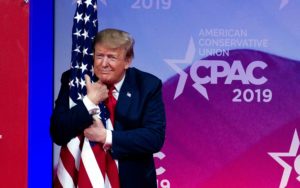
DEMOCRATS
REPUBLICANS
95%
5%

(D) J. Hickenlooper*
(R) Somebody
80%
20%


(D) M. Dougherty
(D) Jena Griswold
60%↑
40%↑


(D) Brianna Titone
(R) Kevin Grantham
(D) Jerry DiTullio
60%↑
30%
20%↓

(D) Diana DeGette*
(R) Somebody
90%
2%

(D) Joe Neguse*
(R) Somebody
90%
2%

(R) Jeff Hurd*
(D) Somebody
80%
40%

(R) Lauren Boebert*
(D) Somebody
90%
10%

(R) Jeff Crank*
(D) Somebody
80%
20%

(D) Jason Crow*
(R) Somebody
90%
10%

(D) B. Pettersen*
(R) Somebody
90%
10%

(R) Gabe Evans*
(D) Manny Rutinel
(D) Yadira Caraveo
45%↓
40%↑
30%

DEMOCRATS
REPUBLICANS
80%
20%

DEMOCRATS
REPUBLICANS
95%
5%

(D) J. Hickenlooper*
(R) Somebody
80%
20%


(D) M. Dougherty
(D) Jena Griswold
60%↑
40%↑


(D) Brianna Titone
(R) Kevin Grantham
(D) Jerry DiTullio
60%↑
30%
20%↓

(D) Diana DeGette*
(R) Somebody
90%
2%

(D) Joe Neguse*
(R) Somebody
90%
2%

(R) Jeff Hurd*
(D) Somebody
80%
40%

(R) Lauren Boebert*
(D) Somebody
90%
10%

(R) Jeff Crank*
(D) Somebody
80%
20%

(D) Jason Crow*
(R) Somebody
90%
10%

(D) B. Pettersen*
(R) Somebody
90%
10%

(R) Gabe Evans*
(D) Manny Rutinel
(D) Yadira Caraveo
45%↓
40%↑
30%

DEMOCRATS
REPUBLICANS
80%
20%

DEMOCRATS
REPUBLICANS
95%
5%
 August 02, 2019 10:13 AM UTC
August 02, 2019 10:13 AM UTC 3 Comments
3 Comments
I know logic is not their strong suit, but I am really confused by the messaging of the opponents of the National Popular Vote Compact. Straight from their website, they say, "We have to stop them from giving away our votes and our voice." I hate to break it to you, but if you voted for Trump in Colorado in 2016 (or Romney 2012, McCain 2008, Kerry 2004 or Gore 2000) your vote did not count. It did not earn your candidate a single electoral vote. Under the current Electoral College, there is no reason to think that Trump will spend any time campaigning in Colorado in 2020. It is a long shot, and out of the way. (And Gardner is not going to want him here.)
If the Electoral College was such a good idea, why is it that NO other political office is elected by a similar system? Representatives, Senators and state officers are elected by a popular vote of all those in the affected district or state.
Why is Net Present Value so controversial?
It was not when I got my MBA.